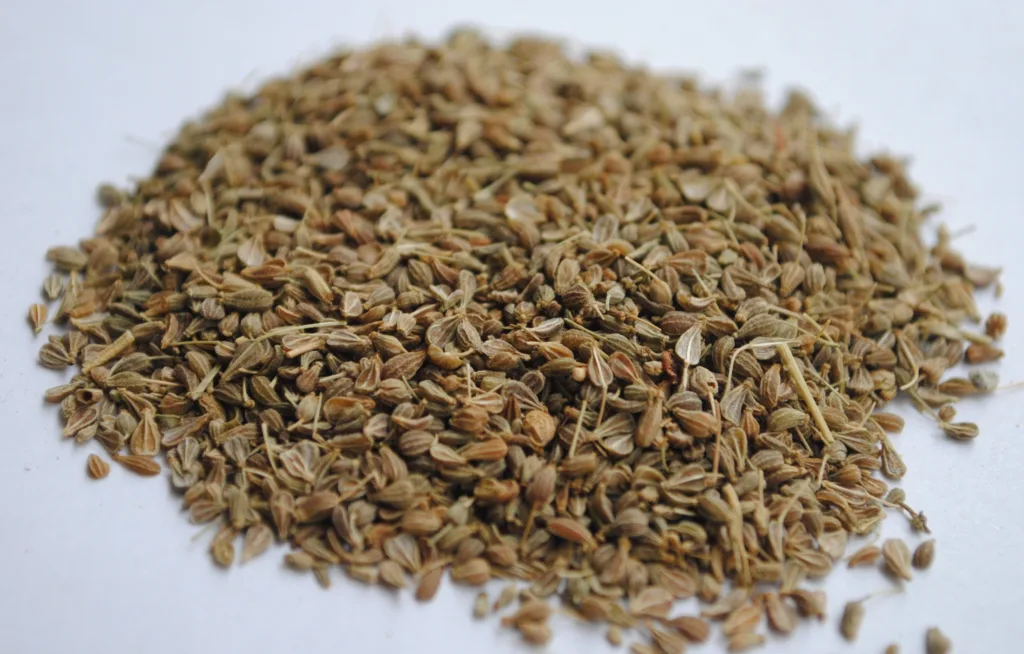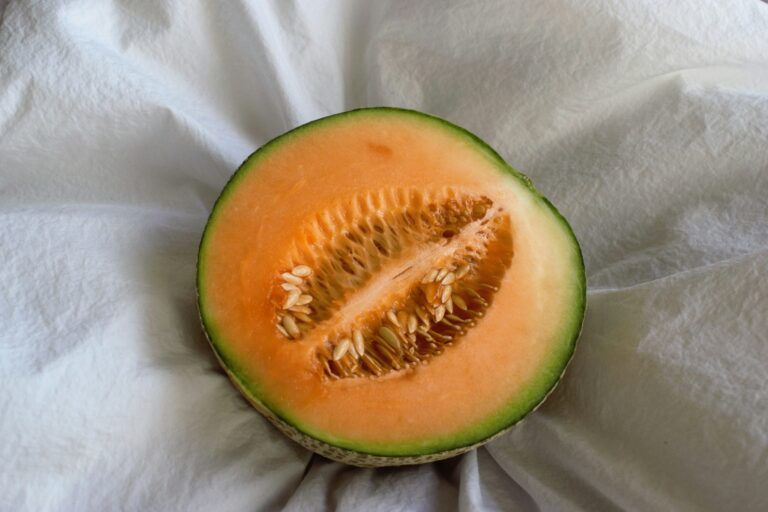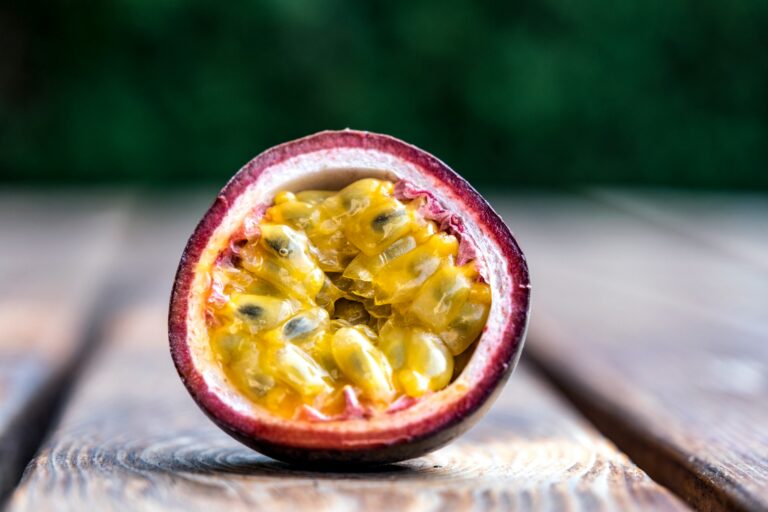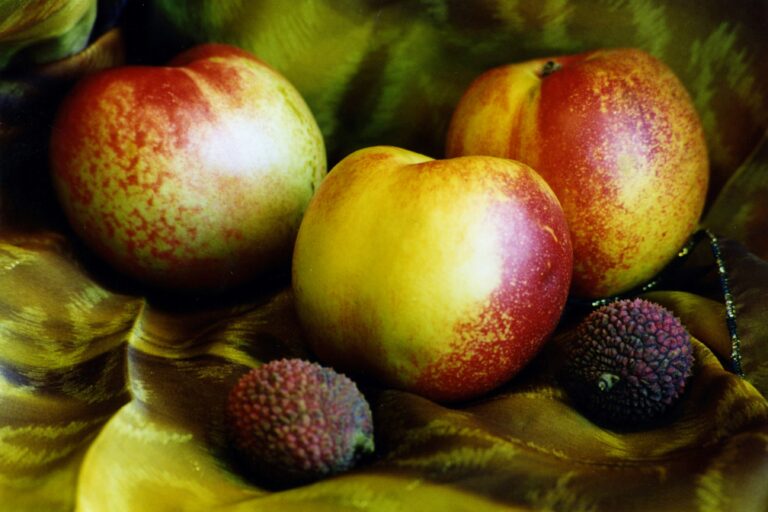The scientific name of the caraway seed is Carum carvi. The origin of the caraway seed appeared in Asia Minor. This plant was introduced about 1000 years ago and is well-known to the ancient Egyptians. Caraway seeds are also known as Persian cumin and meridian fennel. This caraway seed is a biennial plant. This caraway seed belongs to the family Apiaceae. Caraway seed is native to Europe Asia and North Africa.
Color: Caraway seeds range from light brown to dark brown in color. They appear to be brown in color
Size: The size of the caraway seed is about 2 mm long, the height of the caraway seed is 2 to 3 feet, and spreads about 12
inches.
Shape: Crescent-shaped leaves are bright green and these caraway seeds are very small and similar in appearance to carrots.
Flavor: caraway seeds have a very pungent aroma and taste. Caraway seed tastes mostly nutty. However, the flavor of the profile is also bittersweet.
Nutrients
Caraway seeds are very beneficial and important for the human body as they are fully packed with nutrients. Caraway seeds are perfectly edible. They are rich in minerals but their most important source of minerals are iron, zinc, and fiber which helps in treating digestive conditions and improve the texture of hair.
- Calories 22
- Protein 1.3 g
- Fat 0.9 g
- Carbohydrates 3.34 g
- Fiber 2.6 g
- Magnesium 5.4% of the DV
- Calcium 3.6% of the DV
- Manganese 4.8% for women
- Zinc 4.6% for women
| How to grow caraway seeds? |
Healthy Benefits of Caraway Seeds
Caraway seeds are incredibly nutritious and easy to enjoy in a number of different recipes. Caraway seeds help to manage your digestive system.
Helps in reducing weight
Caraway seeds may support weight loss and body composition. Scientists speculate that these effects may be due to positive changes in gut bacteria that affect hormone regulation, fat metabolism, and appetite. Recent studies showed that women taking one ounce of a 10% caraway oil solution daily experienced significantly greater reduction in weight.
Reduce inflammation
Caraway seeds have antioxidant and anti-inflammatory properties. Chronic inflammation can lead to various ailments such as inflammatory bowel diseases (IBD). Its symptoms include cramping, gas, bowel urgency, and ulcer.
Improve brain health
Iron is a mineral found in caraway seed which is useful in the production of hemoglobin. This helps to increase the oxygen flow to your brain. It also helps in improving sleeping patterns as caraway seeds have magnesium, which helps in the production of inhibitory neurotransmitters used for better sleep and also enhances cognitive ability.
Healthy digestion
Caraway seeds have been used significantly to treat several digestive conditions including indigestion and stomach ulcer. Caraway oil relaxes your digestive tract’s smooth muscle tissues, thus relieving indigestion symptoms like gas bloating and cramping. It is an essential oil that blocks the growth of harmful gut bacteria while leaving the beneficial bacteria untouched. Good bacteria present in these produce nutrients, reduce inflammation, improve digestion, and support your immune system.
Reduce cancer risk
The limonense in caraway seeds may help reduce cancer risk. The nethole present in caraway seeds may also inhibit the proliferation of cancer cells in the case of prostate cancer. Caraway may promote carcinogen detoxification and ultimately reduce the risk of cancer. Also, the phenolic compounds in caraway seeds may have anti-carcinogenic effects.
Regulate blood sugar level
In a rat study, the oral administration of caraway seeds was found to reduce serum glucose levels. Oral administration of caraway oil was also found to reduce oxidative stress in diabetes. Caraway seeds exhibit anti-hyperglycemic activity in diabetic rats.
Improve skin health
Effective in the treatment of vitiligo (a disease that causes loss of skin color). Aqueous extract of caraway essential oil was found to have anti-convulsant properties that help prevent seizures in mice.
Side Effects of Caraway Seeds
Caraway seeds may be harmful and cause adverse effects.
- Kidney stones are another common side-effect of the overconsumption of caraway seed
- You might gain weight due to overconsumption of caraway seed as it has high fiber content
- Eating too many caraway seeds may lead to gastrointestinal disorders and stomach ulcers
- Side effects may include heartburn and nausea
FAQ
Are Caraway and Cumin the same?
The scientific name of the caraway seed is Carum carvi and belongs to the family Apiaceae. Caraway and cumin are sometimes confused. Compared to caraway, cumin has larger seeds, a stronger flavor, and a lighter color.
How many caraway seeds per day?
Although there is no standard dosage, some study indicates that taking 1 to 6.7 grams (half a teaspoon to 1 tablespoon) of whole caraway three times per day is likely safe and beneficial, But it’s good to consult with your dietitian first.






